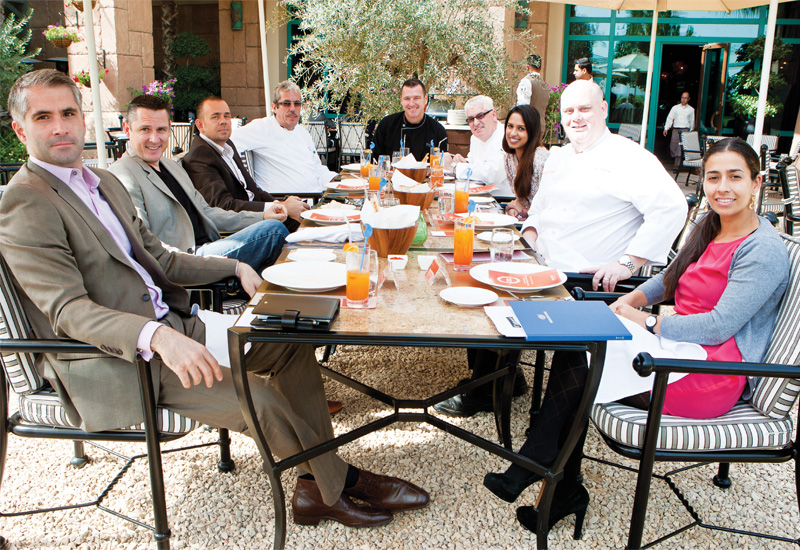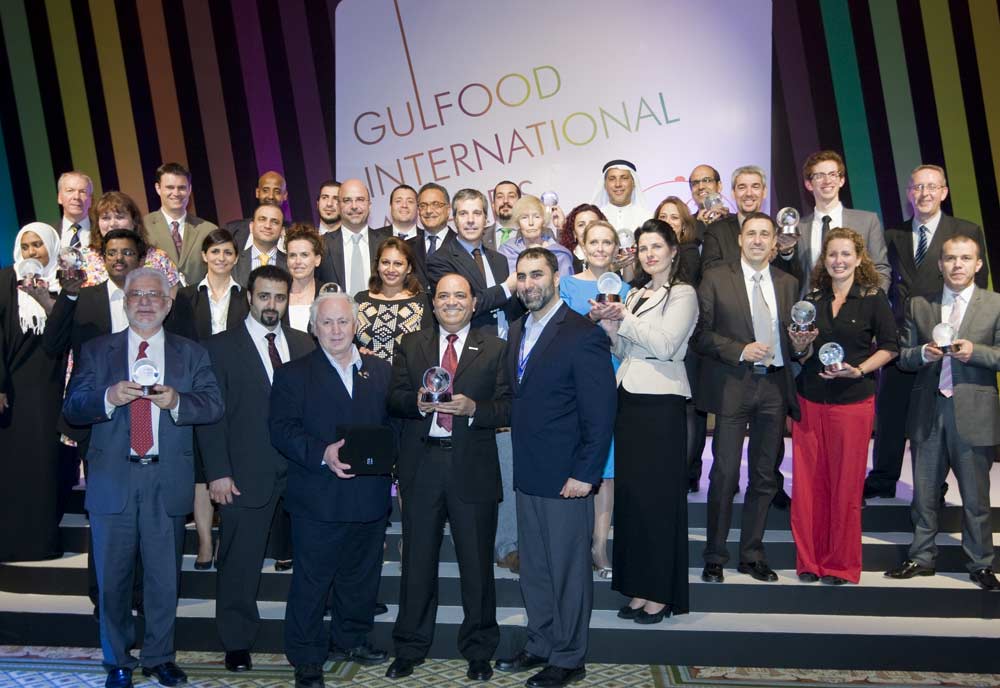 The Caterer Conference Advisory Panel met at Ronda Locatelli, Atlantis, The Palm to consider topics for the March agenda.
The Caterer Conference Advisory Panel met at Ronda Locatelli, Atlantis, The Palm to consider topics for the March agenda.
The advisory panel for Caterer’s 2013 conference on Food & Business met to discuss the most pressing industry issues that should make it on to the March agenda.
The Caterer Middle East Conference Advisory Panel met for the first time this year to discuss the agenda for the Food and Business Conference which will be held on March 25.
The meeting was hosted at the stunning new terrace area of Ronda Locatelli in Atlantis, The Palm, Dubai on Sunday 6 January and the team comprised a host of knowledgeable and renowned F&B heads including Russell Impiazzi, gourmet culinary director, Galleries Lafayette; Paul Kennedy, brand chef, Mango Tree; Michael Kitts, director of culinary arts, Emirates Academy of Hospitality Management; Uwe Micheel director of kitchens, Radisson Blu Dubai Deira Creek and president, Emirates Culinary Guild; Vasileios Oikonomopoulos, director of F&B, Fairmont The Palm; Mark Patten, VP – Culinary, Atlantis The Palm and Simon Penhaligan, director of restaurant operations for RMAL Hospitality.

| Advertisement |
On the menu was sharing wood oven pizzas, puntarella salad with tuna mosciame, green beans and tomato dressing, gnocchi with black winter truffle, chestnut ravioli potatoes and mixed mushrooms and an afternoon of engaging discussion about the most pressing issues currently affecting the F&B industry.
Recruitment and retention, licensing laws, sustainable sourcing and supplier issues were all hot topics – very few had changed from last year’s agenda. If anything, progress in some of those areas had stagnated or the situation had worsened.
The 3 Rs
“Recruitment and retention were on last year’s agenda but the situation has become worse in the industry, and we fear challenges will only increase over the next few years,” said Micheel.
“For the last three years we went totally the wrong way, people got promoted too fast, they were moving for a few dollars more. Five years ago I refused to give a guy commis 1 and now he’s a pastry chef.
Five years ago for me he was not good enough for first commis – this isn’t right – and he’s not an exception, this is common. In the last five years, our standards have dropped,” he asserted.
In line with this was the suggestion made by Patten on this occasion, but echoed across the industry, that there are not enough culinary schools in the UAE and while some existed “they were not the size or magnitude,” for what the industry needed to be able to manage well.
“Right now the demand is far too great for what we can deliver and it’s only going to get bigger with all the new projects on the agenda for Dubai. It’s one thing to bring a plane load of staff to Dubai and put them in white jackets and put them in a kitchen. We need to change direction,” he added.
Kitts and Impiazzi believed that the industry was already doing as much as it could, attending open days to promote itself to students and inviting them into outlets to gather an understanding of what the industry was like to work in, adding that schools needed to now back the industry and push it as a great one to be in.
“We need a scheme that promotes the industry to 16-17 year olds. Especially local graduates who often leave the UAE. F&B is a huge topic it’s only going to get bigger,” said Impiazzi.
On the topic of education, Micheel felt it important to highlight the issue of sustainable sourcing, particularly when it came to overfishing and the industry’s need to unite to tackle the problem.
“I’ve started eliminating hammour about a year ago from my menu, but a lot of the colleagues around me are still doing hammour promotions, this is again something that has to come from the top – laws exist but are not enforced – if we as a consumer stop using it, it will stop being fished.”
Impiazzi added that education was necessary to push this forward: “if you talk to half the consumer base they don’t know what sustainable sourcing is – it’s all well chefs can take it off the menu but if people are still asking where the hammour is because they are in Dubai and they expect it – its an awareness situation.”
Like most laws, “the parameters change quite frequently,” said Patten – this was common on the licensing situation.
Article continues on next page ...









 Search our database of more than 2,700 industry companies
Search our database of more than 2,700 industry companies









